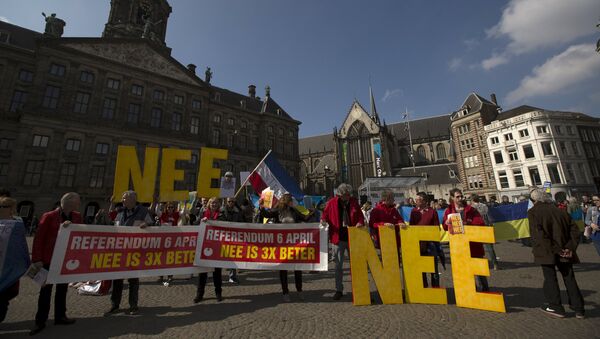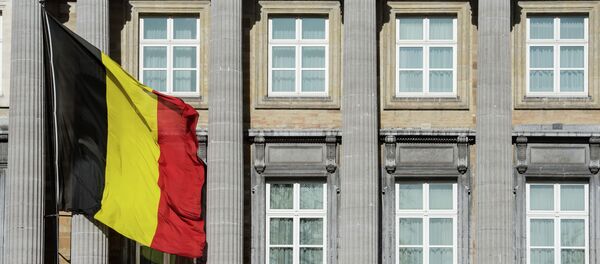"The Dutch government has to decide whether it will propose legislation to Parliament to withdraw the earlier confirmation of the Association agreement or legislation which will confirm the agreement (including additional declaration) once again. This will take some time, but probably before the elections of March coming year," de Graaf, a member of social liberal party Democrats 66, said about the possible timing of the final vote in the Dutch parliament, which may clear the way for EU-Ukraine deal or kill it.
The deal between Ukraine and the European Union, signed in 2014 and supposed to deepen political, economic and trade links, was initially approved by the Dutch Parliament. However, in April Dutch voters held a referendum on the issue and rejected the agreement by 61 percent of votes out of fears that the deal could obligate the Netherlands to provide financial or military support to Kiev. Despite low voters' turnout and non-binding nature of the referendum, most Dutch parties agreed to abide by the outcome, prompting long and difficult negotiations between the Hague and Brussels.
Most of the left and right parties are speculated to be skeptical about giving green light to the deal with Kiev. On March 15, the Netherlands will hold parliamentary elections, and ahead of it politicians are not eager to break free from political bind caused by voters' rejection of the EU deal with Ukraine.


